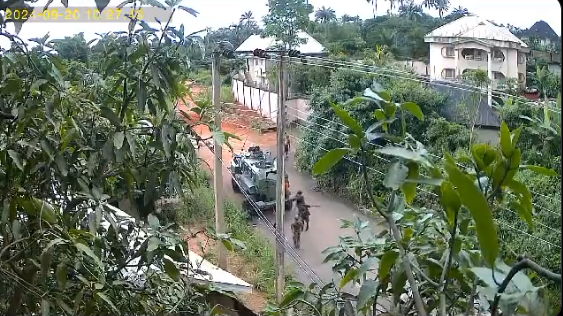The Biafra conflict finds its roots deep within Nigeria’s troubled history, marked by ethnic tensions, economic disparities, and political power struggles. The struggle for independence by the Igbo people of southeastern Nigeria, who predominantly inhabit Biafra, escalated into a significant armed conflict in the late 1960s.
Following Nigeria’s independence in 1960, regional disparities began to surface, particularly affecting the eastern region, leading to feelings of marginalization among the Igbo populace.
The discontent culminated in the declaration of the Republic of Biafra in May 1967, led by Colonel Odumegwu Ojukwu, who sought to provide a sovereign state for the Igbo people following widespread violence, discrimination, and the loss of lives during the Nigerian Civil War (also known as the Biafran War) from 1967 to 1970.
The ensuing civil war resulted in a devastating humanitarian crisis, exacerbated by blockades imposed by the Nigerian government that led to widespread famine and the loss of over 3 million lives. Although the war ended with Biafra’s reintegration into Nigeria, the quest for autonomy and recognition has continued.
In the years following the war, the Nigerian government adopted policies aimed at national integration but never stayed true to it and many Biafrans still feel marginalized. The formation of the Biafran Liberation Army in recent years is aimed at achieving self-determination among the Igbo people.
This group has engaged in various forms of resistance against injustices and military oppression in the region. The military actions taken by the Nigerian government in response to these movements have intensified tensions, leading to numerous clashes and raising concerns about human rights violations in Biafra land.
Violence and Human Rights Violations in Biafra Land
The ongoing war in Biafra Land has given rise to significant concerns regarding human rights violations perpetrated by the Nigerian army.
Numerous reports detail horrific accounts of violence, wherein the military has committed acts that stand in contrast to their stated objective of restoring peace and stability in the region. Civilians have become unwitting victims, enduring a myriad of abuses that challenge the principles of human dignity and social justice.
Eyewitness testimonies have shown graphic scenes of unwarranted killings, with innocent civilians caught in the crossfire during military operations. The armed forces’ response to perceived threats has often resulted in the loss of innocent lives.
This has created an environment of fear and uncertainty among the Biafran population. Moreover, reports have surfaced regarding the systematic molestation and abuse of women and children. Such acts of violence are not merely incidental; they constitute a calculated strategy to exert control and instill terror within communities.
Women have recounted harrowing experiences of sexual violence during military raids, while children have been left traumatized, both physically and psychologically. These abhorrent violations serve to deepen the already complex and precarious situation in Biafra Land.
The Nigerian Army’s Response and Media Coverage
The Nigerian Army has faced significant scrutiny regarding its actions in Biafra land, particularly in light of the recent CCTV footage highlighting its aggressive operations. In its public relations strategy, the army has consistently portrayed itself as a stabilizing force tasked with maintaining peace in the region.
This narrative emphasizes their role in ensuring national security against perceived threats, often framing their operations as necessary measures to combat separatism and unrest. However, this has raised questions about the legitimacy of their methods, particularly when juxtaposed against eyewitness accounts and video evidence that suggest a more violent reality.
The media coverage of these events has been notably sparse, leading to a lack of comprehensive public awareness regarding the situation in Biafra land. Mainstream media outlets in Nigeria have been criticized for their limited reporting on the army’s operations.
CCTV Footage and Its Implications for the Future
TBPA News reporter Felix has seen a recent release of CCTV footage showing the Nigerian Army’s siege in Biafra land. The aggressive military response shown in the footage is likely to exacerbate tensions within the region, where there is a pervasive sense of disenfranchisement and marginalization.
With the footage, it appears the Biafra Liberation Army is more prepared to fight the Nigerian army now than ever with Biafrans often reminding the Nigeria State that “this is not 1967,” a statement that shows readiness for whatever it will take for Biafra to exit from Nigeria, even when it means war.
Watch the video below.
Breaking
The footage of the ongoing Biafra war of Liberation. This is how the Nigeria terrorist @HQNigerianArmy do their own fighting while bandits and other terrorist groups are ravaging other part of Nigeria, the Nigeria terrorist @HQNigerianArmy are helping them in the East,… pic.twitter.com/KefEjeusco— Simon Ekpa (@simon_ekpa) September 21, 2024






Terrorist military are not allowed in our land, any Nigeria terrorist must be eliminated